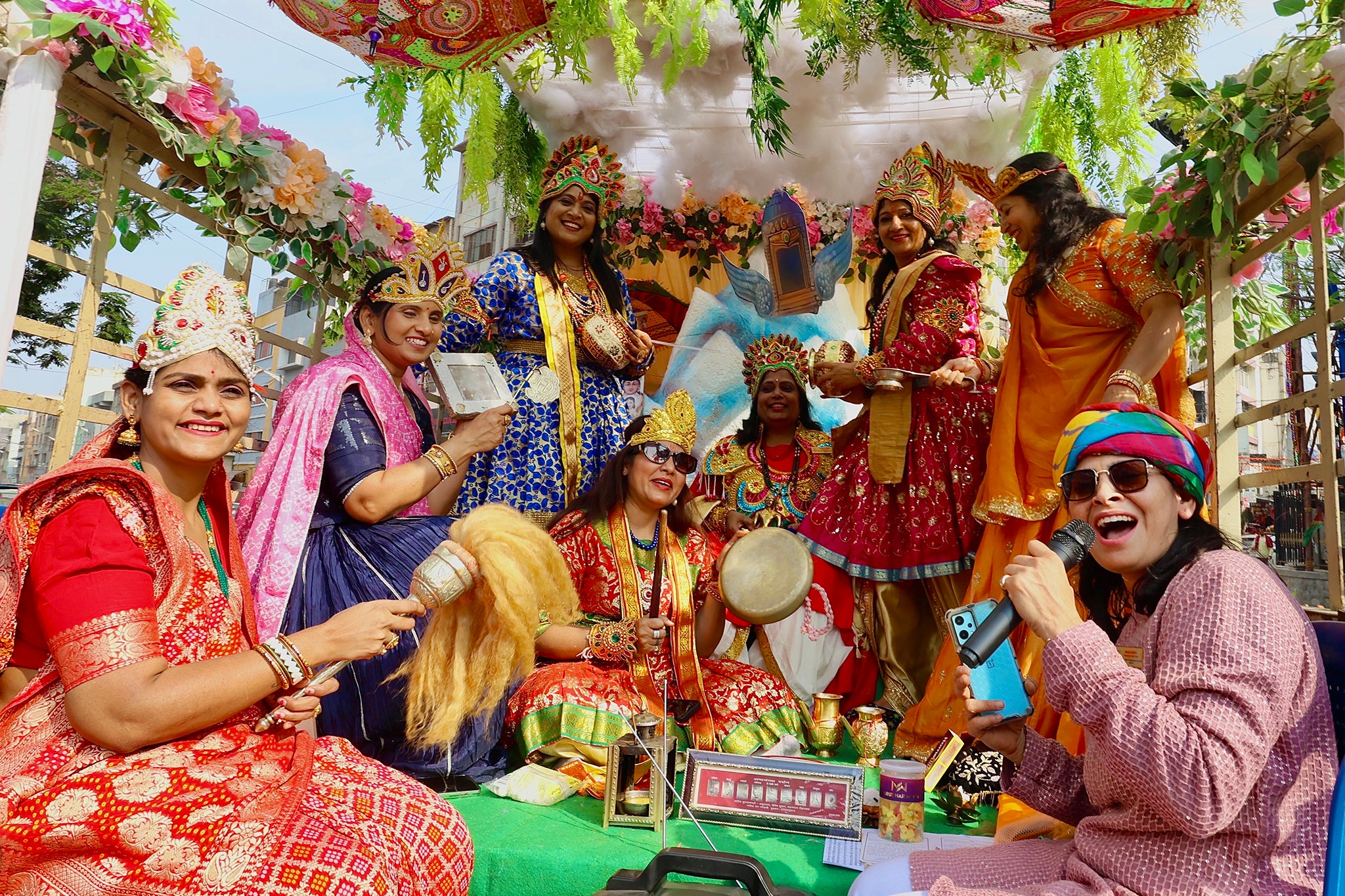ARTICLE AD BOX
A child rights body in India is considering legal action after a three-year-old girl with a terminal brain tumour died during a religious fasting ritual, sparking outrage and ethical concerns.
The incident took place in Indore city in the central state of Madhya Pradesh. The minor was initiated into Santhara, an ancient and controversial Jain ritual of voluntary fasting unto death, on the advice of a religious leader.
The state commission for the protection of child rights said they were reviewing the death and would soon decide whether to recommend prosecution of the parents or the monk involved, the Hindustan Times reported.
Although the incident took place in late March, it came to public attention only after the Golden Book of World Records, described as an “independent world records keeping authority”, issued a certificate recognising the three-year-old as the “youngest person to vow the Jain ritual Santhara”.
According to local media, the child’s parents, both IT professionals in their early 30s, turned to Rajesh Muni Maharaj, a Jain religious leader, after their daughter’s health took a turn for the worse.
She had been diagnosed with a brain tumour and underwent surgery in January.
She reportedly improved initially, but her condition deteriorated again in March.
Doctors then installed an artificial feeding tube to administer liquids to her on 21 March.
That same day, the parents consulted Mr Maharaj, who advised them to opt for Santhara.
“Maharaj ji saw my daughter's condition and told us that the girl's end was near and she should be given the Santhara vow. This fast holds a lot of significance in Jainism. After thinking about it, we finally agreed,” her father told PTI news agency.
“We didn't go with the intention of getting her Santhara done, but Guruji said her condition was serious and suggested it. Everyone in the family agreed,” he told NDTV.
“We were watching her suffer. It was a very painful decision,” her mother said. “I want my daughter to be happy in her next birth.”
The ritual was reportedly done at the monk’s ashram in Indore at 9.25pm the same day. The child died 40 minutes later, at 10.05pm.

Santhara, also known as Sallekhana or Samadhi Maran, is a religious practice in Jainism where its adherents, generally the elderly or gravely ill, voluntarily give up food and water to embrace death through spiritual purification.
Rooted in the religion’s core principles of ahimsa, or non-violence, and detachment from the physical world, the practice is viewed by followers as a means to shed karmic bonds and attain liberation.
Santhara has been the subject of considerable debate in India. In 2015, the Rajasthan High Court ruled the practice illegal, equating it with suicide and making it punishable under the penal code.
The decision sparked widespread protests from Jains, who argued that Santhara was a voluntary religious act distinct from suicide.
The Supreme Court subsequently stayed the high court’s decision, effectively allowing the practice to continue pending a further legal review.
The application of Santhara to minors sparks particularly complex ethical and legal concerns. Legal experts point out that minors lack the capacity to make informed decisions about life and death. Further, the Indian constitution guarantees the right to life under Article 21. While Article 25 provides for freedom of religion, the right is subject to considerations of public order, morality and health.
“The decision of life and death of a minor is not even with the parents. This raises a serious legal and constitutional question: can Santhara be administered in the case of a minor who cannot legally or emotionally comprehend death? Article 25 grants freedom of religion but not above the law. Even religious practices cannot override a minor's legal right to life,” senior lawyer Ritesh Agarwal told NDTV.
In his defence, NDTV reported, Mr Maharaj claimed the deceased child “had religious understanding equivalent to that of a 50-year-old”.
He has reportedly guided over 100 people into the Santhara vow so far.
“This is a religious practice meant for fully conscious adults, typically the elderly,” Omkar Singh, a member of the state child rights commission, told the Hindustan Times.
“The toddler could not have possibly consented. We are examining whether this constitutes a violation of child protection laws and will act accordingly.”
A senior doctor familiar with the case told the newspaper that the child should have been in a hospital receiving palliative care.
“The child was already in critical condition. Santhara is an enormous physical and psychological ordeal even for an adult. A toddler cannot comprehend or withstand such an act,” the doctor said.
If you are experiencing feelings of distress, or are struggling to cope, you can speak to the Samaritans, in confidence, on 116 123 (UK and ROI), email jo@samaritans.org, or visit the Samaritans website to find details of your nearest branch.
If you are based in the USA, and you or someone you know needs mental health assistance right now, call or text 988, or visit 988lifeline.org to access online chat from the 988 Suicide and Crisis Lifeline. This is a free, confidential crisis hotline that is available to everyone 24 hours a day, seven days a week. If you are in another country, you can go to www.befrienders.org to find a helpline near you.









 English (US) ·
English (US) ·